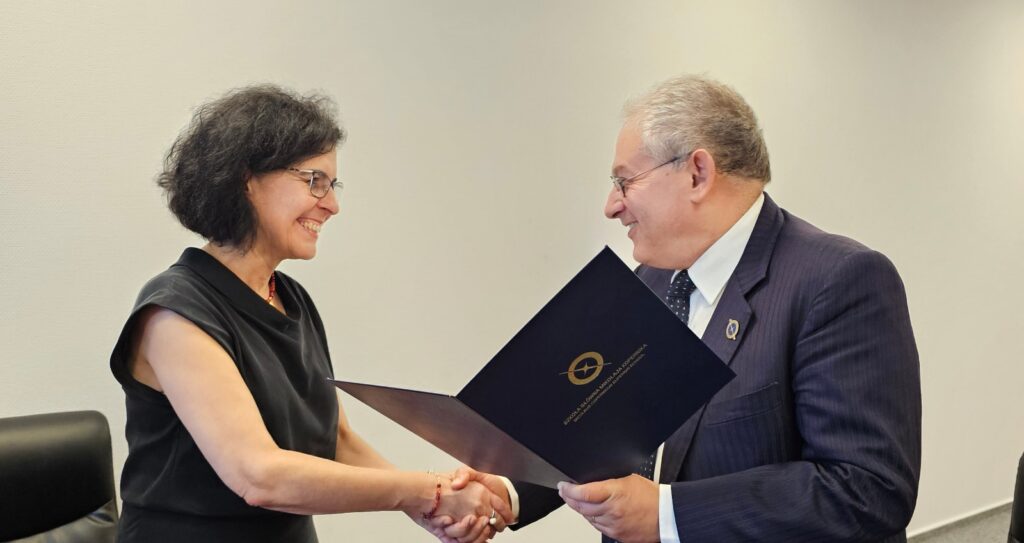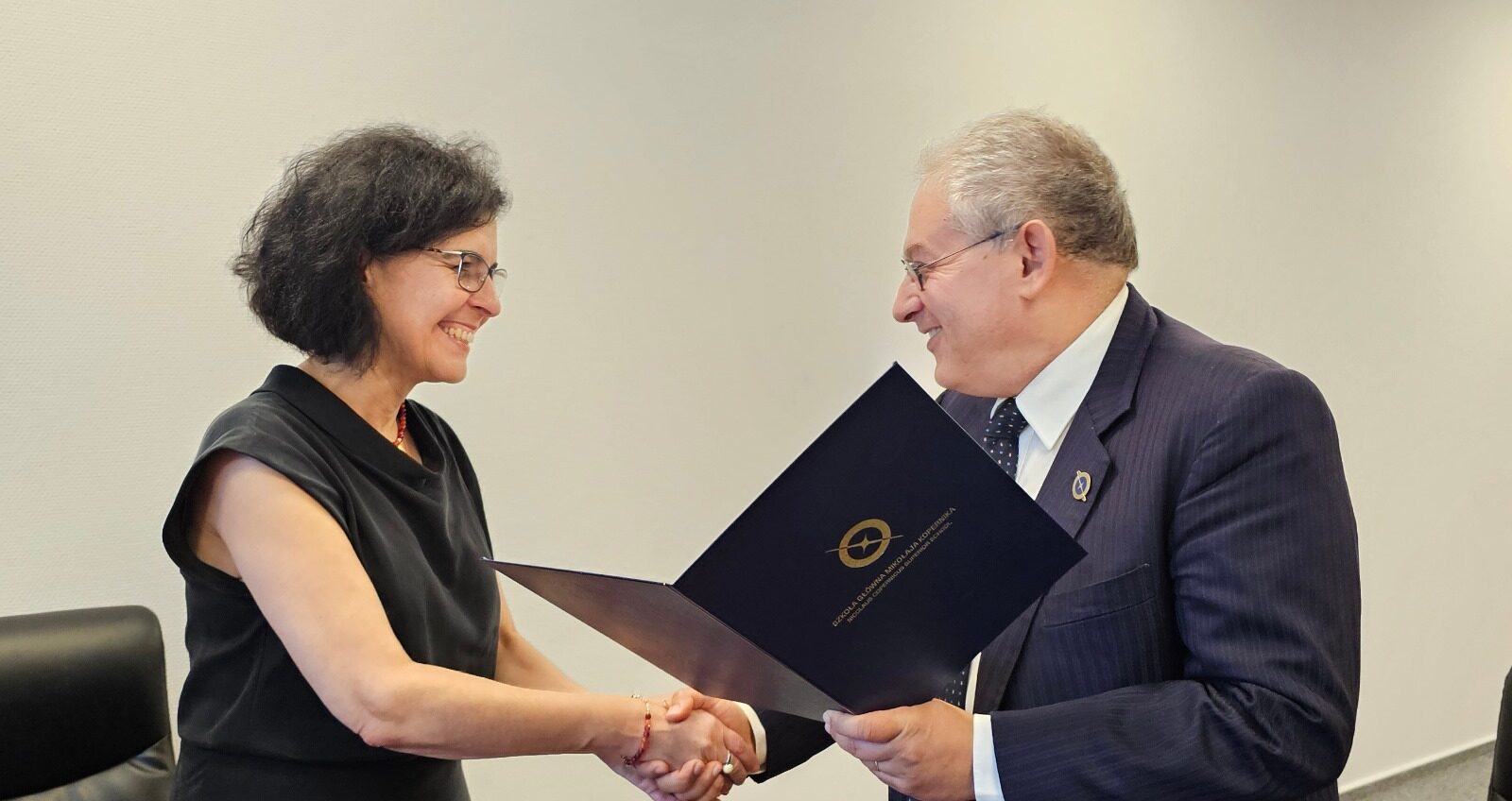Graça Rocha received her appointment as Dean of the College of Astronomy and Natural Sciences at SGMK from Prof. Fabrizio Fabrizio Giulimondi, Acting Rector of SGMK.

Dr. Graça Rocha is a scientist at the Jet Propulsion Laboratory (JPL) and a professor at Caltech. Her specialty is cosmology, in particular research on structure formation models and fundamental physics through the study of Cosmic Microwave Background Radiation (CMB).
As a PhD student at Cambridge University, UK, she pioneered the use of CMB data to determine cosmological parameters, which has become one of the most important areas in cosmology. Later on she pioneered the use of CMB data to constrain fundamental physics by means of constraining temporal variations in the fundamental constants of nature. She played an important role on several CMB experiments: Tenerife, Python, CAT, VSA, BICEP and Planck.
She is a Planck project scientist, coordinator of three Planck core areas and co-author of several innovative mathematical and statistical frameworks for analyzing CMB data. In addition, she was a spokesperson for the Planck team at the Planck Plenary Session at ESLAB, Netherlands in 2013.
She is currently actively involved in preparations for future CMB polarization experiments, such as CMB-S4, and the potential CMB space mission, PICO. In addition, she is conducting research on the detection and characterization of exoplanets in spectroscopic data, direct imaging data and using radial velocity techniques.
In 2018, Graça Rocha and the Planck team received the prestigious Gruber Prize in Cosmology.
Her research interests include physical cosmology, large-scale structure of the universe, computational astrostatistics, and structure and analysis of astronomical data.
She has received multiple awards for her achievements: Giuseppe and Vanna Cocconi Prize for Planck and WMAP teams, Marcel Grossman Institutional Award for Planck Scientific Collaboration, Gruber Prize in Cosmology for Planck team and principal investigators Nazzareno Mandolesi and Jean-Loup Puget, Royal Astronomical Society’s 2018 Group Achievement Award for Planck mission, as well as multiple NASA and JPL awards.







